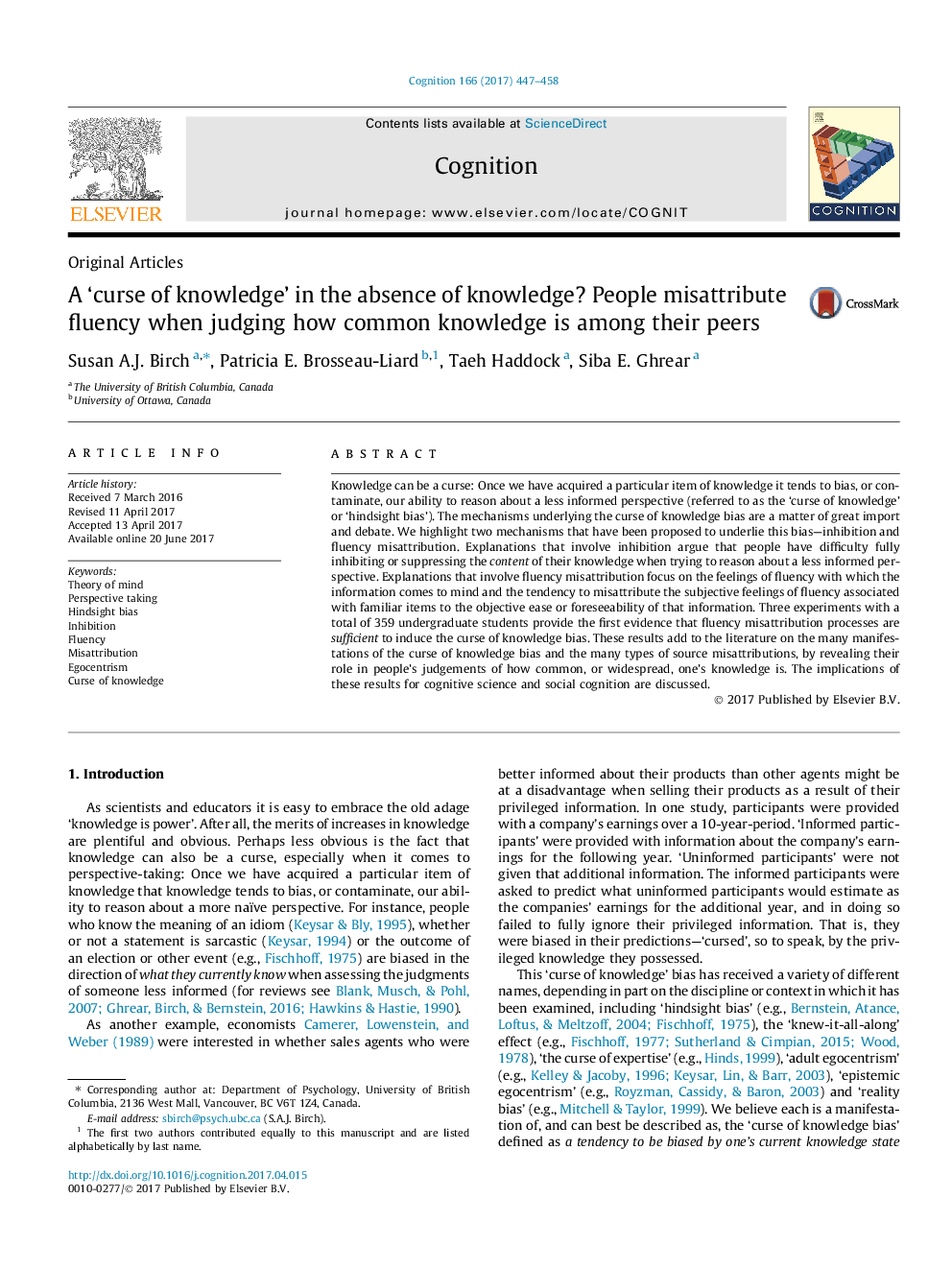| Article ID | Journal | Published Year | Pages | File Type |
|---|---|---|---|---|
| 5041570 | Cognition | 2017 | 12 Pages |
Knowledge can be a curse: Once we have acquired a particular item of knowledge it tends to bias, or contaminate, our ability to reason about a less informed perspective (referred to as the 'curse of knowledge' or 'hindsight bias'). The mechanisms underlying the curse of knowledge bias are a matter of great import and debate. We highlight two mechanisms that have been proposed to underlie this bias-inhibition and fluency misattribution. Explanations that involve inhibition argue that people have difficulty fully inhibiting or suppressing the content of their knowledge when trying to reason about a less informed perspective. Explanations that involve fluency misattribution focus on the feelings of fluency with which the information comes to mind and the tendency to misattribute the subjective feelings of fluency associated with familiar items to the objective ease or foreseeability of that information. Three experiments with a total of 359 undergraduate students provide the first evidence that fluency misattribution processes are sufficient to induce the curse of knowledge bias. These results add to the literature on the many manifestations of the curse of knowledge bias and the many types of source misattributions, by revealing their role in people's judgements of how common, or widespread, one's knowledge is. The implications of these results for cognitive science and social cognition are discussed.
